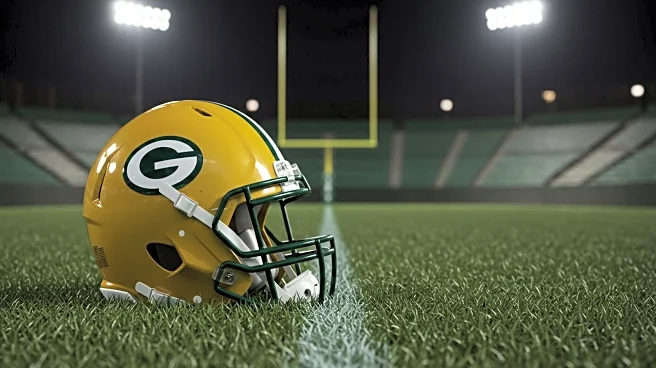What's Happening?
Billy Howton, a prominent wide receiver for the Green Bay Packers during the 1950s, has died at the age of 95 in Houston. Howton was known for his exceptional performance on the field, retiring as the National Football League's (NFL) career leader in receptions after the 1963 season. He was also the first president of the NFL Players Association. Despite his achievements in football, Howton's later years were marred by legal troubles. In 1981, he was convicted of mail and wire fraud, involving a scheme that defrauded several institutions out of $8 million. His son, William, confirmed his death, which occurred in a memory-care facility.
Why It's Important?
Billy Howton's passing marks the end of an era for the NFL, as he was a key figure in the league's history both on and off the field. His contributions to the sport, particularly his role in establishing the players' union, have had a lasting impact on player rights and labor relations in professional sports. Howton's career highlights, including setting records for receiving yards, underscore his talent and influence during a formative period for the NFL. However, his later conviction for financial fraud serves as a reminder of the complexities and challenges faced by athletes transitioning from sports to other ventures.
What's Next?
The NFL community is likely to reflect on Howton's legacy, both as a player and as a union leader. His contributions to the sport and the players' rights movement may be revisited in discussions about the evolution of the NFL and its labor policies. Additionally, his story may prompt further examination of the support systems available to athletes post-retirement, particularly in managing financial and legal affairs.
Beyond the Headlines
Howton's life story highlights the dual nature of fame and success in professional sports. While his on-field achievements and leadership in the players' union are celebrated, his legal troubles illustrate the potential pitfalls athletes can face. This duality may influence ongoing conversations about athlete education and support, emphasizing the need for comprehensive career transition programs.










